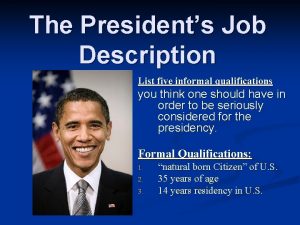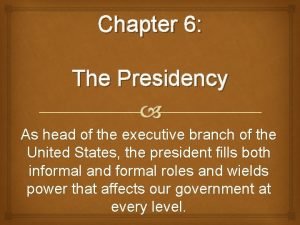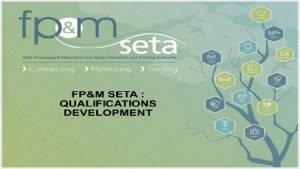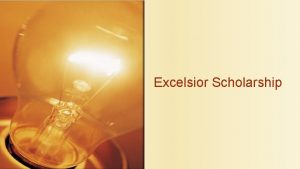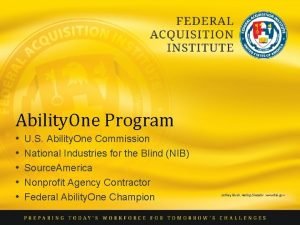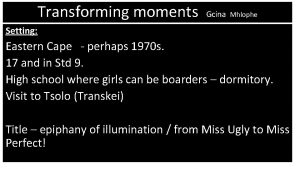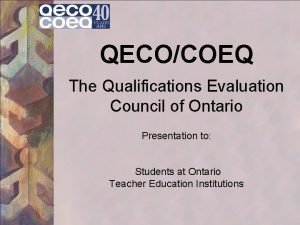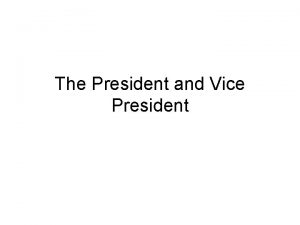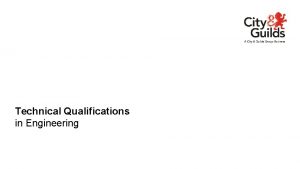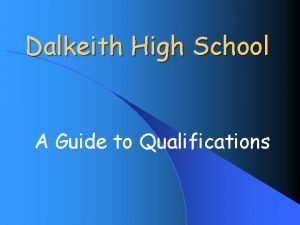The President Qualifications for President The President is










- Slides: 10

The President

Qualifications for President The President is the head of the executive branch of govt. n The President is considered the top political job in the country and the world; why? n Constitution requires that a person who wants to serve as President be at least 35, a native born American citizen, and a resident of the United States for at least 14 years; why a natural born citizen? n So far every American president has been a male, all but one has been a Protestant Christian, most have won elections before, most have had a college education, most have come from populous states n n John Kennedy, the only Catholic President

Term of Office n Presidents are elected to a four year term through the electoral college – Pros of electoral college? – Cons of electoral college? n Under the 22 nd amendment, ratified in 1951, Presidents can only serve two terms or 10 years – George Washington precedent? Franklin Roosevelt? – Are term limits good? Other alternatives? n President receives a salary of $400, 000 per year, plus an extra expense allowance of $50, 000 a year, a $100, 000 non-taxable travel account and $19, 000 for entertainment n Franklin Roosevelt

Constitutional Powers and Responsibilities n Veto bills passed by Congress n Can call Congress into special session, when? Serve as Commander in chief of the armed forces Meet with officials of foreign countries Pardon or reduce the penalties against people convicted of federal crimes Constitution requires president to give a Congress a “state of the union” from time to time Make treaties with other countries with Senate approval Appoint cabinet, federal judges, and ambassadors with Senate approval n n n – Pocket Veto – Potential for conflict?

Vice President and Succession Vice President was originally whoever came in 2 nd in Electoral College; 12 th amendment n Vice President is elected with the President through the Electoral College, same qualifications; Constitution says VP presides over the Senate and breaks a tie n Vice Presidents are not usually very visible, takes over if the President can’t perform his job, 9 vice presidents have become president due to the death or resignation of a president n In 1947 Congress passed the Presidential Succession Act, laid out who would become President in order n n Gerald Ford, last VP to permanently assume Presidency

Presidential Succession 1. Vice President of the United States 2. Speaker of the House 3. President pro Tempore of the Senate Secretaries of the president’s Cabinet now fill out the balance of list of succession: 4. Secretary of State 5. Secretary of the Treasury 6. Secretary of Defense 7. Attorney General 8. Secretary of the Interior 9. Secretary of Agriculture 10. Secretary of Commerce 11. Secretary of Labor 12. Secretary of Health & Human Services 13. Secretary of Housing & Urban Development 14. Secretary of Transportation 15. Secretary of Energy 16. Secretary of Education 17. Secretary of Veterans' Affairs 18. Secretary of Homeland Security

Roles of the President Chief Executive: President must carry out the laws passed by Congress n President is in charge of 15 cabinet departments and the approximately 3 million civilians who work for the federal govt. ; who can he fire? n Presidents can issue “executive orders, ” which have the force of law, most deal with administrative problems; examples? n n https: //www. youtube. com/watch? v=JUDSeb 2 z. HQ 0 Signing statements? n Presidents gets to appoint judges to the Supreme Court and other federal courts n President also has the power to grant pardons, issue a reprieve, or grant amnesty; controversy? n n http: //www. c-spanvideo. org/program/Ri start at 6: 20

Roles of the President Chief Diplomat: president directs the foreign policy of the United States, makes key decisions about how the US acts towards other countries. n Commander in Chief: President is in charge of the army, navy, air force, marines, and coast guard, President decides when to send troops into battle but Congress declares war n War Powers Resolution, 1973: President must notify Congress within 48 hours when troops are sent into battle and the troops must be brought home after 60 days unless Congress gives its approval n n Watching video of the attack on Bin Laden

Roles of the President n Legislative Leader: most of the bills Congress considers each year come from the executive branch – Must build a good relationship with Congress; why? Head of State: President is the living symbol of the nation; carries out ceremonial functions; is this important? n Economic Leader: President tries to help the country’s economy by dealing with problems like unemployment, prices, and taxes; key to success; who gets credit? n Party Leader: President is the leader of his or her party, president gives speeches and raises money for fellow party members who are running for office n

Presidential Leadership n Whig Theory: president is limited to expressly granted constitutional authority – More common in the 19 th century n Stewardship Theory: strong president, authority limited only at points specifically prohibited by law – More common in the 20 th century n Why has presidential power grown? – Changing condition in the country – Communication and media, “bully pulpit” – Power of the United States (foreign policy) – Court appointments n Dangers of grown presidency – “Imperial presidency” – When, if ever, can the President be indicted?
 Informal requirements for president
Informal requirements for president Chapter 6 the presidency
Chapter 6 the presidency President vice president treasurer secretary
President vice president treasurer secretary Fp&m seta qualifications
Fp&m seta qualifications What is shadow teaching
What is shadow teaching Excelsior scholarship qualifications
Excelsior scholarship qualifications Insure oklahoma qualifications
Insure oklahoma qualifications Ability one
Ability one Cibtac qualifications
Cibtac qualifications Transforming moments grade 12 short story download
Transforming moments grade 12 short story download Qeco general education chart
Qeco general education chart
